12 Potential Parrot Dying Symptoms & Tips
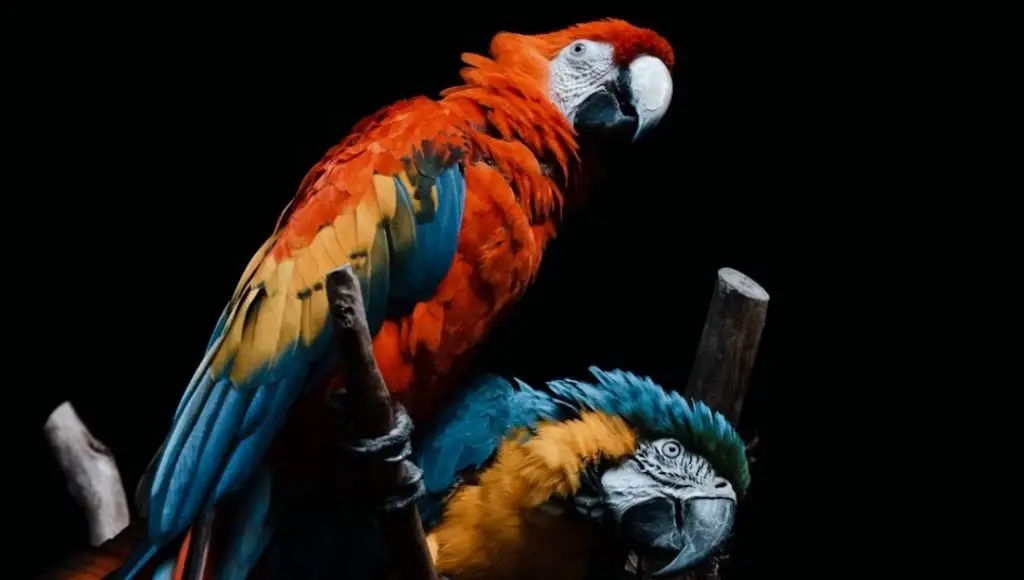
Today, we’re diving into a topic that can be tough but important to address: parrot dying symptoms.
Whether you’re a proud parrot parent or considering bringing one into your home, knowing the signs to watch for can make a world of difference for your feathered friends.
So, let’s explore the red flags that may indicate your parrot needs immediate attention.
Parrot Dying Symptoms
When a parrot is experiencing symptoms of illness or nearing the end of its life, there are a few key signs to look out for.
These may include changes in appetite, weight loss, lethargy, respiratory distress, and abnormal droppings.
It is important to consult with a veterinarian experienced in avian care to accurately diagnose and provide appropriate care for your parrot.
Let’s break it down further…
Here are some of the potential parrot dying symptoms:
1. Progressive loss of balance or coordination
One of the first signs that a parrot may be unwell is a progressive loss of balance or coordination.
You may notice your feathered friend struggling to perch or walk steadily. They might frequently stumble or fall off their perch.
This symptom could indicate a neurological issue or an underlying illness affecting their motor skills.
It’s essential to seek veterinary advice promptly to diagnose and treat the root cause.
2. Tremors of the head and neck
Tremors of the head and neck are another worrisome symptom to watch out for in a sick parrot.
These involuntary movements can range from mild to severe and may be accompanied by visible shaking or twitching.
Tremors can be indicative of various health problems, including neurological disorders, infections, or toxic exposure.
A thorough examination by a veterinarian is crucial to determine the exact cause and provide appropriate treatment.
3. Dull expression of the eyes
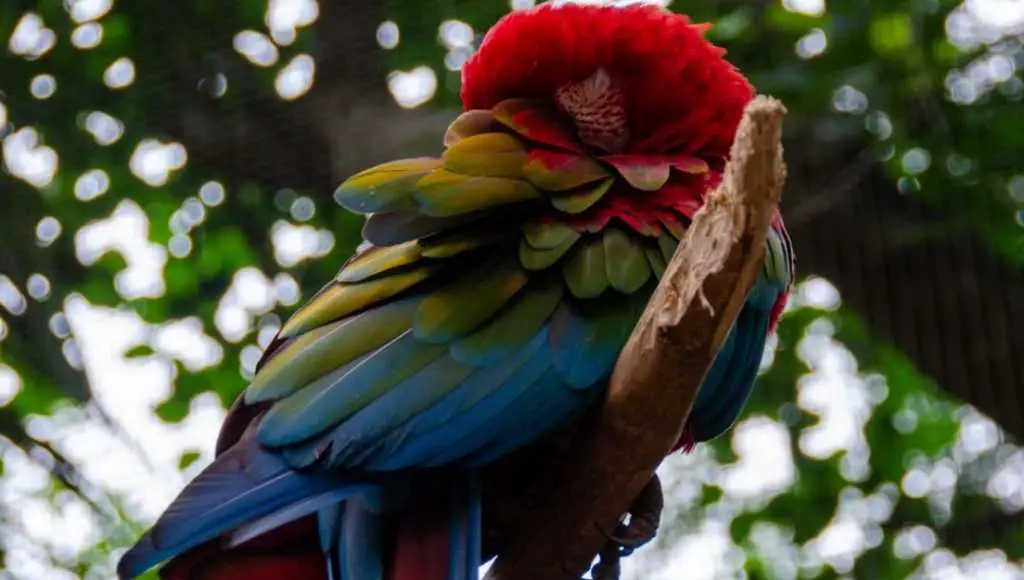
The eyes are often referred to as windows to the soul, and in the case of a parrot, they can provide valuable insight into their well-being.
A dull expression in a parrot’s eyes may indicate a decline in their overall health.
Instead of the usual bright and alert appearance, the eyes may appear lackluster or sleepy.
This symptom can be associated with underlying illnesses, such as respiratory infections, nutritional deficiencies, or systemic diseases.
Seeking veterinary attention is vital to identify and address the underlying cause.
4. Significant changes in appetite
Parrots are notorious for their healthy appetites, so any significant changes in their eating habits should be a cause for concern.
If your parrot suddenly loses interest in food or shows a notable decrease in appetite, it could be an indication of an underlying health issue.
In some cases, parrots may also experience increased thirst or difficulty swallowing.
These symptoms can be associated with a wide range of illnesses, including gastrointestinal problems, infections, or organ dysfunction.
It’s crucial to consult a veterinarian to diagnose the cause and establish an appropriate treatment plan.
5. Progressive weight loss
One of the common signs of a parrot nearing the end is a progressive loss of weight.
This can be due to a variety of factors, including decreased appetite or the body’s inability to properly absorb nutrients.
As the parrot’s health declines, it may have difficulty eating or digesting food, leading to weight loss over time.
6. Paralysis or prostration
Paralysis or prostration refers to the loss of movement or extreme weakness in a parrot.
When a parrot is near the end of its life, its body systems may begin to shut down, resulting in muscle weakness or even paralysis.
This can manifest as the bird being unable to fly, perch, or move around as it used to.
It’s important to note that this symptom may vary in severity depending on the underlying cause.
7. Difficulty breathing
Difficulty breathing is another common sign that a parrot may be nearing the end of its life.
This symptom can manifest as rapid or labored breathing, wheezing, or even gasping for air.
As the parrot’s health declines, its respiratory system may be compromised, making it harder for the bird to breathe comfortably.
This can be distressing for both the parrot and its owner.
8. Lethargy
Lethargy, or extreme tiredness and lack of energy, is often seen in parrots nearing the end of their lives.
The bird may appear weak, unresponsive, or unwilling to engage in its usual activities.
This can be due to a combination of factors, including the body’s declining energy levels, pain or discomfort, or the progression of an underlying illness.
9. Unusual discharge from the eyes, nose, or beak
One of the first signs that something might be wrong with a parrot’s health is the presence of unusual discharges from the eyes, nose, or beak.
These discharges can range from watery or thick mucus-like substances to blood.
While occasional sneezing or watery eyes may not be alarming, persistent and abnormal discharge should raise concerns.
Such symptoms could indicate an underlying infection, respiratory issues, or even a more serious condition.
It’s crucial to seek veterinary advice promptly to identify the cause and provide appropriate treatment.
10. Changes in droppings
Monitoring your parrot’s droppings is an essential aspect of maintaining their overall health.
Any noticeable changes in color, consistency, or frequency can be indicative of an underlying problem.
For example, if you notice a significant change in the color of their droppings, such as dark green or black, it might suggest internal bleeding or digestive issues.
Alternatively, watery or loose droppings may indicate a potential infection or dietary imbalance.
Any persistent abnormality in your parrot’s droppings should be brought to the attention of a veterinarian to determine the cause and devise an appropriate treatment plan.
11. Behavioral changes (Hiding)
Parrots are social creatures known for their vibrant personalities, so it’s concerning when they exhibit sudden behavioral changes, such as hiding.
If your parrot begins to isolate itself, showing a lack of interest in its surroundings and avoiding interaction, it could be a sign that something is seriously wrong.
This behavior might be an indication of physical discomfort, pain, or distress. It’s crucial to observe any changes in behavior and seek veterinary attention promptly.
Early intervention can significantly improve the chances of effective treatment and a positive outcome.
12. Loss of vocalization and seizures
Parrots are renowned for their ability to mimic sounds and communicate through vocalizations.
Therefore, a sudden loss of vocalization can be a significant cause for concern.
If your parrot becomes unusually quiet or stops making any sounds altogether, it could be an indication of an underlying health issue or extreme stress.
Additionally, seizures can occur in parrots, causing involuntary movements, tremors, or convulsions.
Seizures can be caused by various factors, including neurological disorders, infections, or toxic exposures.
Immediate veterinary attention is necessary to assess the situation and provide appropriate treatment.
What to do if you notice your parrot is dying
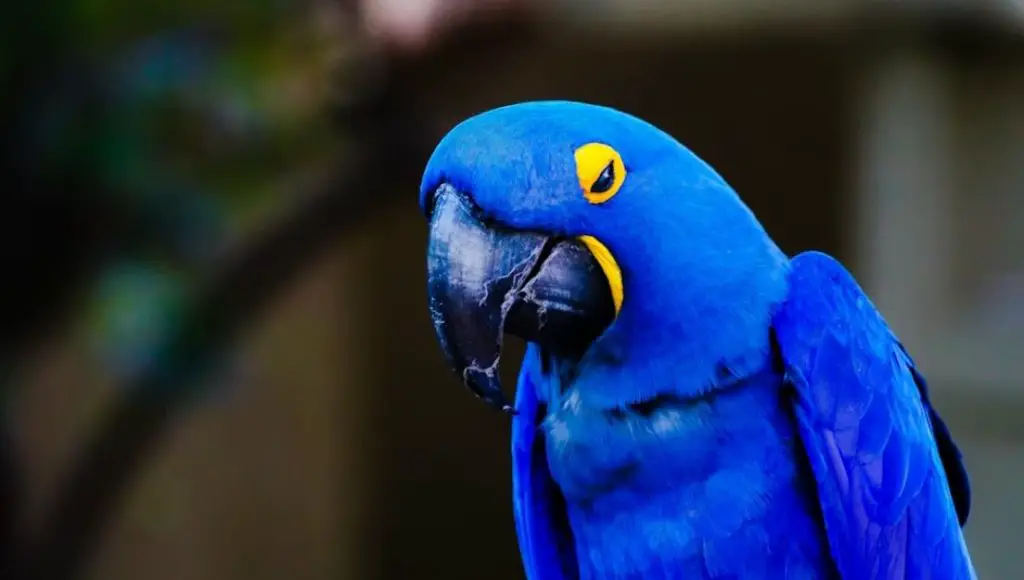
It’s important to act quickly if you notice any signs of your parrot’s health deteriorating.
Here are some steps you can take:
1. Assess the situation: Observe your parrot’s behavior, breathing, and overall condition to determine if it’s an emergency or if you can seek professional help.
2. Contact a veterinarian: Reach out to an avian veterinarian who specializes in bird care. Explain the situation and ask for their guidance on what to do next.
3. Provide comfort and support: Create a quiet and calm environment for your parrot. Offer fresh water, soft food, and a warm place for them to rest.
4. Limit stress: Minimize loud noises, sudden movements, and other potential stressors. Keep other pets away from your parrot to avoid additional anxiety.
5. Follow the vet’s instructions: If the veterinarian advises you to bring your parrot in for immediate treatment, follow their instructions and transport your parrot safely.
6. Stay vigilant and hopeful: Monitor your parrot closely and follow any further guidance from the veterinarian. Remember to stay positive and hopeful for your parrot’s recovery.
How to comfort a dying parrot
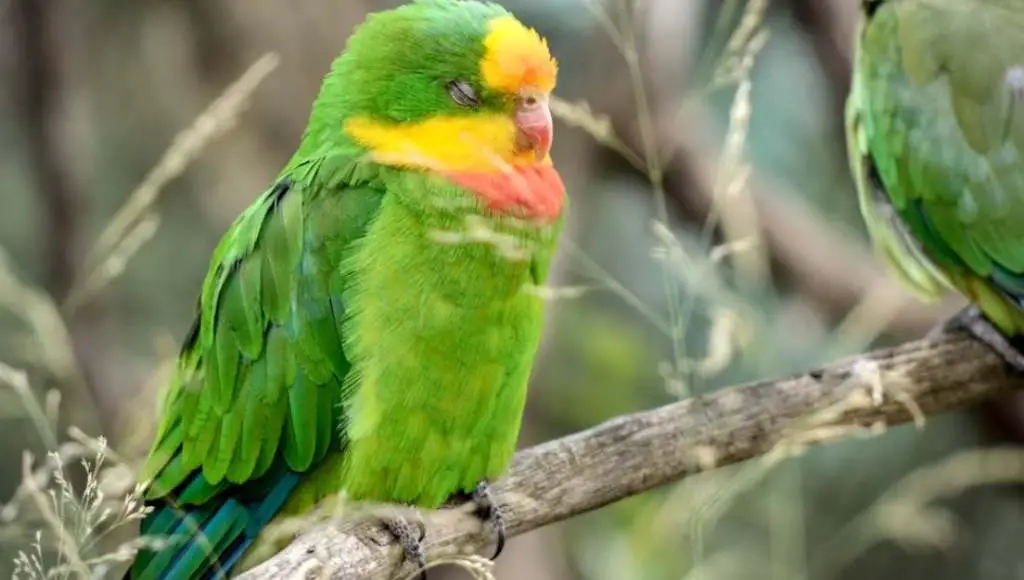
When comforting a dying parrot, it’s essential to create a calm and soothing environment.
Begin by finding a quiet space where the parrot can feel safe and secure. Speak to the parrot in a soft and gentle tone, offering words of reassurance and comfort.
Provide warmth by covering the cage with a light blanket or towel, ensuring that the parrot feels protected. Offer the parrot its favorite foods or treats, if it is still able to eat.
Lastly, spend time sitting near the cage, offering your presence and companionship until the parrot passes away, providing solace and support during its final moments.
How to get over the death of your parrot
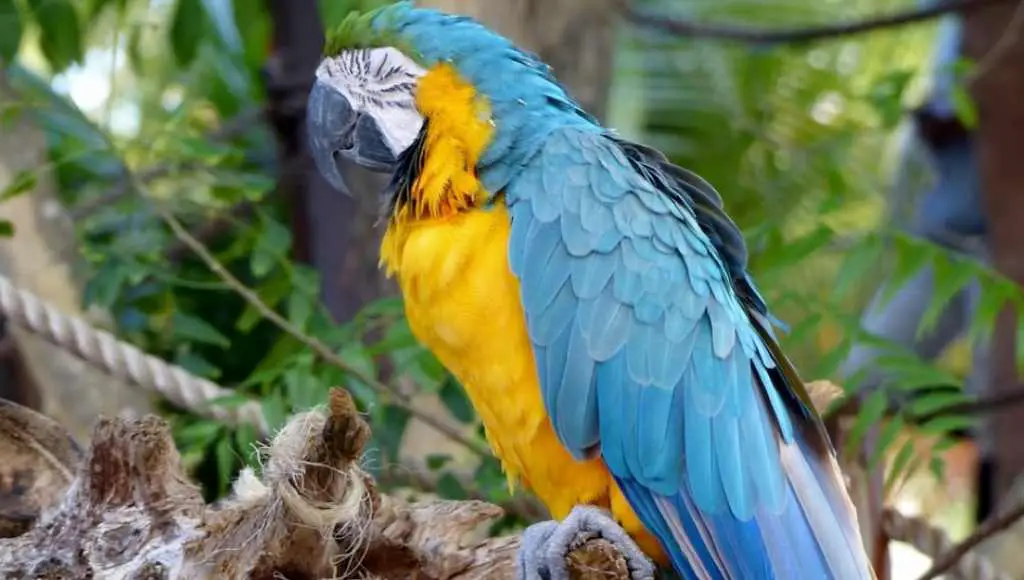
Losing a beloved pet can be incredibly difficult, and I’m here to help you navigate through the grieving process.
When it comes to getting over the death of your parrot, it’s important to allow yourself to feel the full range of emotions that come with loss – sadness, anger, and even guilt.
Take the time to honor your parrot’s memory by creating a small memorial or writing a letter expressing your feelings.
Reach out to friends or support groups who understand your pain and can offer comfort. Remember that healing takes time, so be patient with yourself.
Finally, consider adopting a new pet when you feel ready – not to replace your parrot, but to open your heart to the joy of a new connection.
Learn more about identifying a sick parrot.
FAQs
How can I tell if my parrot is dying?
It can be challenging to determine if a parrot is dying, but there are a few common signs to look out for. These may include changes in appetite, weight loss, lethargy, difficulty breathing, vomiting, diarrhea, or a sudden decline in overall health. If you notice any of these symptoms, it is crucial to consult a veterinarian as soon as possible.
My parrot seems weak and is not eating. Could it be a sign of approaching death?
Loss of appetite and weakness can indeed be indicators of a parrot’s declining health. However, it’s important to remember that these symptoms can also be caused by various illnesses or stress. To ensure the best care for your parrot, it is essential to seek professional veterinary advice.
Can stress or changes in environment cause my parrot to appear as if it’s dying?
Yes, parrots are highly sensitive creatures, and stress or sudden changes in their environment can have a significant impact on their well-being. These factors can lead to behavioral changes, loss of appetite, and even physical symptoms that may resemble signs of distress or illness. It’s crucial to create a calm and stable environment for your parrot and provide them with ample mental and physical stimulation.
What are some signs of respiratory distress in a parrot?
Respiratory distress in parrots can manifest in various ways. Look out for symptoms such as wheezing, labored breathing, open-mouthed breathing, coughing, sneezing, nasal discharge, or frequent regurgitation. If you observe any of these signs, it is recommended to seek immediate veterinary care.
Learn more about health problems in birds.
Is it normal for a parrot to become less vocal before passing away?
While there is no definitive answer, it is not uncommon for a parrot to become less vocal as it nears the end of its life. However, this is not a universal rule, and individual parrots may exhibit different behaviors. It’s important to monitor your parrot’s overall health and consult with a veterinarian for a proper evaluation.
What steps can I take to ensure the best care for my parrot during its final days?
Providing comfort and a stress-free environment is crucial for your parrot during its final days. Ensure they have access to fresh food and water, maintain a consistent temperature, and minimize any potential sources of stress. Spending quality time with your parrot, offering gentle interactions, and seeking professional veterinary advice can help ensure their comfort and well-being during this challenging time.
Learn more about the signs your bird is dying of old age.
Conclusion
In conclusion, it’s crucial for parrot owners to be vigilant about their pets’ health. If you notice any sudden changes in behavior, such as decreased appetite, lethargy, or respiratory distress, it’s important to seek veterinary care immediately. Remember, early detection and intervention can make all the difference in ensuring the well-being of your feathered friend.
